Nathanael Blake
Postdoctoral Fellow
Nathanael Blake, Ph.D. is a Postdoctoral Fellow at the Ethics and Public Policy Center. His primary research interests are American political theory, Christian political thought, and the intersection of natural law and philosophical hermeneutics. His published scholarship has included work on Jean-Jacques Rousseau, Hans-Georg Gadamer, Alasdair MacIntyre, Russell Kirk and J.R.R. Tolkien. He is currently working on a study of Kierkegaard and labor. As a cultural observer and commentator, he is also fascinated at how our secularizing culture develops substitutes for the loss of religious symbols, meaning and order.
Nathanael Blake, Ph.D. is a Postdoctoral Fellow at the Ethics and Public Policy Center. His primary research interests are American political theory, Christian political thought, and the intersection of natural law and philosophical hermeneutics. His published scholarship has included work on Jean-Jacques Rousseau, Hans-Georg Gadamer, Alasdair MacIntyre, Russell Kirk and J.R.R. Tolkien. He is currently working on a study of Kierkegaard and labor. As a cultural observer and commentator, he is also fascinated at how our secularizing culture develops substitutes for the loss of religious symbols, meaning and order.
Dr. Blake grew up in the Pacific Northwest, and received an undergraduate degree in microbiology with a chemistry minor from Oregon State University. After working as a writer and editor in the pro-life movement, he enrolled in graduate studies at the Catholic University of America, earning a doctorate in political theory. His dissertation was titled: “Natural Law and History: The Use and Abuse of Practical Reason.” Blake was a Richard M. Weaver Fellow of the Intercollegiate Studies Institute and served as an adjunct professor of American Government at Wheeling Jesuit University.
Dr. Blake is a Senior Contributor to The Federalist, where he has published over 150 pieces since 2017. His work has been published in a variety of publications, including Public Discourse, The Catholic World Report, and National Review.
An evangelical Christian, Blake helps lead worship at his church—he particularly enjoys playing old hymns on double bass.
Leaked Biden Plan Would House Violent Men In Women’s Prison Cells
Nathanael Blake
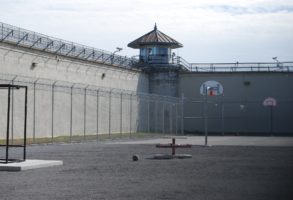
President Biden’s proposed executive order on law enforcement would order men identifying as women to be transferred to female prisons.
Articles
The Federalist / January 5, 2022
Why The Omicron Variant Is Good News
Nathanael Blake

We must learn to live with the possibility of infection, rather than imagining a world without this virus.
Articles
The Federalist / January 3, 2022
Defund The Speech Police
Nathanael Blake
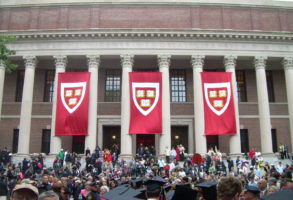
Defeating wokeness will require more than ballot-box triumphs. The campaign against it will be long and must be sustained at multiple levels of government.
Articles
The Federalist / December 21, 2021
Joy Behar Accidentally Admits Social Conservatives Were Right About Sex
Nathanael Blake

Many on the left are belatedly realizing the truths that sex isn’t just recreation and there is no substitute for a healthy family culture. Social conservatives should be heartened.
Articles
The Federalist / December 10, 2021
If the Supreme Court Whiffs on Abortion, They’ll Blow Up the Conservative Legal Movement
Nathanael Blake
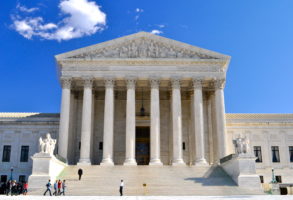
The Dobbs case challenging Roe v. Wade could bring grassroots conservatives back into the originalist fold, or it could ignite a civil war that would destroy the conservative legal movement.
Articles
The Federalist / December 8, 2021
No, The Right Doesn’t Exist To Save The Left From Its Own Folly
Nathanael Blake
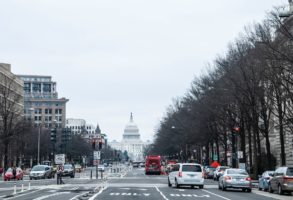
Self-described conservative liberals are horrified at the prospect of conservatives using democracy to defend traditional values and American livelihoods.
Articles
The Federalist / December 1, 2021
Rittenhouse Verdict Reveals Once Again What The Left Really Wants
Nathanael Blake

The response of left-wing media and politicians to Kyle Rittenhouse’s justified acquittal shows that they have learned nothing.
Articles
The Federalist / November 23, 2021
Why National Conservatives’ Platform Should Start With Men
Nathanael Blake

Sen. Josh Hawley is on to something: When men struggle to find good jobs and to form and maintain families, they often turn to alternatives that sap their fitness for a good life.
Articles
The Federalist / November 15, 2021
The Impossibility of Absolute Academic Freedom: A Response to Robert T. Miller
Nathanael Blake
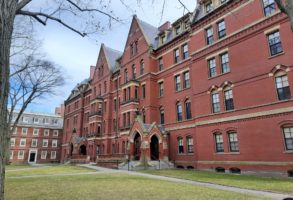
There will always be some limits on academic freedom, and it is better to be honest about what they are and who sets them than to try to wish them away. We need to formulate real-world standards, rather than retreating into the impossible fantasy of absolute academic freedom.
Articles
Public Discourse / November 14, 2021
Denying Schools Are Teaching Critical Race Theory Won’t Make It Popular With Parents
Nathanael Blake

Those pushing a top-down cultural revolution do not want a label, because that makes it harder to delegitimize opposition to their agenda.
Articles
The Federalist / November 10, 2021
The Death Of Marriage Proves Yet Again That Social Conservatives Were Right
Nathanael Blake

The sexual revolution’s redefinition of family was never going to stop with same-sex marriage, but few on the left have had the courage to say no to the expansion of the alphabet agenda.
Articles
The Federalist / October 27, 2021
